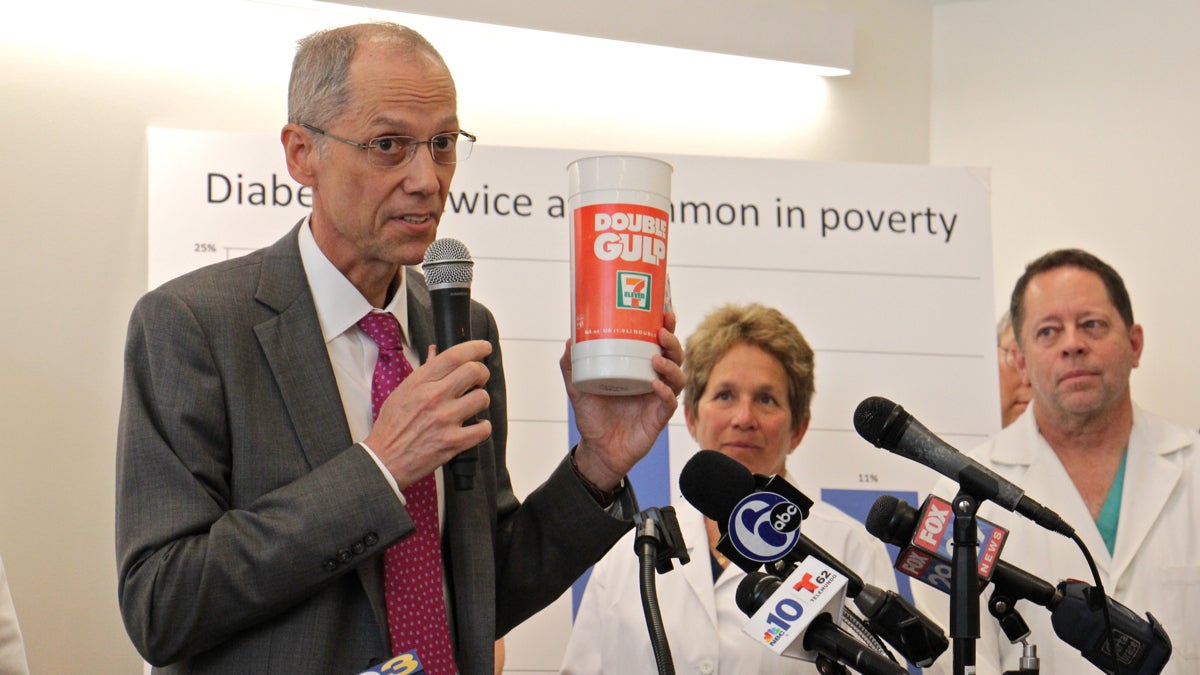Health leaders get vocal in support of Philly soda tax proposal
Listen
Philadelphia Health Commissioner Thomas Farley holds up a large soda container during a press conference at Puentes de Salud Health Clinic where doctors gathered to tout the health benefits of the sugary drinks tax. (Emma Lee/WHYY)
Area doctors and public health advocates are stepping up their support of a sugary drink tax in Philadelphia.
The health arguments for a tax have been largely absent from the latest debate, with Mayor Jim Kenney focusing on how a 3 cents-per-ounce tax on sweetened beverages would raise needed money for citywide pre-K, and upgrades to parks and recreation centers.
Now area health leaders wants to draw attention to the direct health benefits of a tax.
Dr. Thomas Farley, Philadelphia’s health commissioner and a leading voice in New York City’s efforts to limit consumption of sugary drinks, joined several other public health professionals at Puentes de Salud Health Clinic Monday for what he described as the first event solely focused on the health impact of Philadelphia’s proposed tax.
Farley said sugary drinks are a main contributor to the city’s diabetes epidemic. A tax would help curb consumption, he said, and reverse some alarming health trends.
“I don’t think people recognize how severe the health crisis is that we face, and sugary drinks are the biggest single contributor to our twin epidemics of obesity and diabetes,” he said. About 350 residents die from diabetes each year in Philadelphia, with the disease factoring into about 1,000 deaths per year.
Proponents of sugary drink taxes have faced uphill battles in the past. It’s viewed as regressive in targeting people who might not be able to afford the price hike on soda.
While no one likes to directly be taxed, Farley said, no one has to pay it. There are cheaper, healthier alternatives to a 7-Eleven Big Gulp that contains the equivalent of 58 packets of sugar.
Dr. Marisa Rogers said when taxes increase and reduce consumption, patients benefit. She spoke about woman who recently had to have both legs amputated as a result of her diabetes.
“It may be too late for Mrs. B to avoid serious complications, but it’s not too late for countless other Philadelphians whose future is at risk for the same level of disease and disability,” she said.
According to estimates from a recent Harvard study, the tax could prevent some 2,000 cases of diabetes a year in the city.
The mayor has built the sugary drink tax into his proposed budget. City Council has been reluctant to embrace it.
WHYY is your source for fact-based, in-depth journalism and information. As a nonprofit organization, we rely on financial support from readers like you. Please give today.

